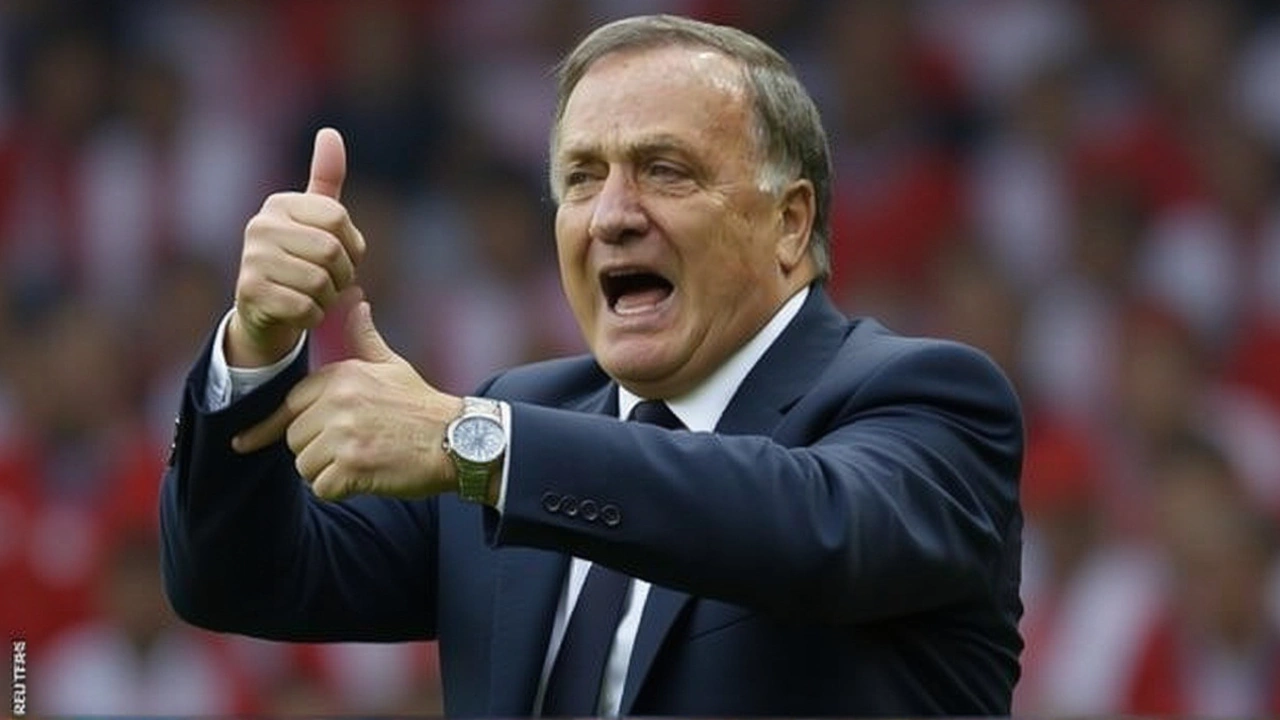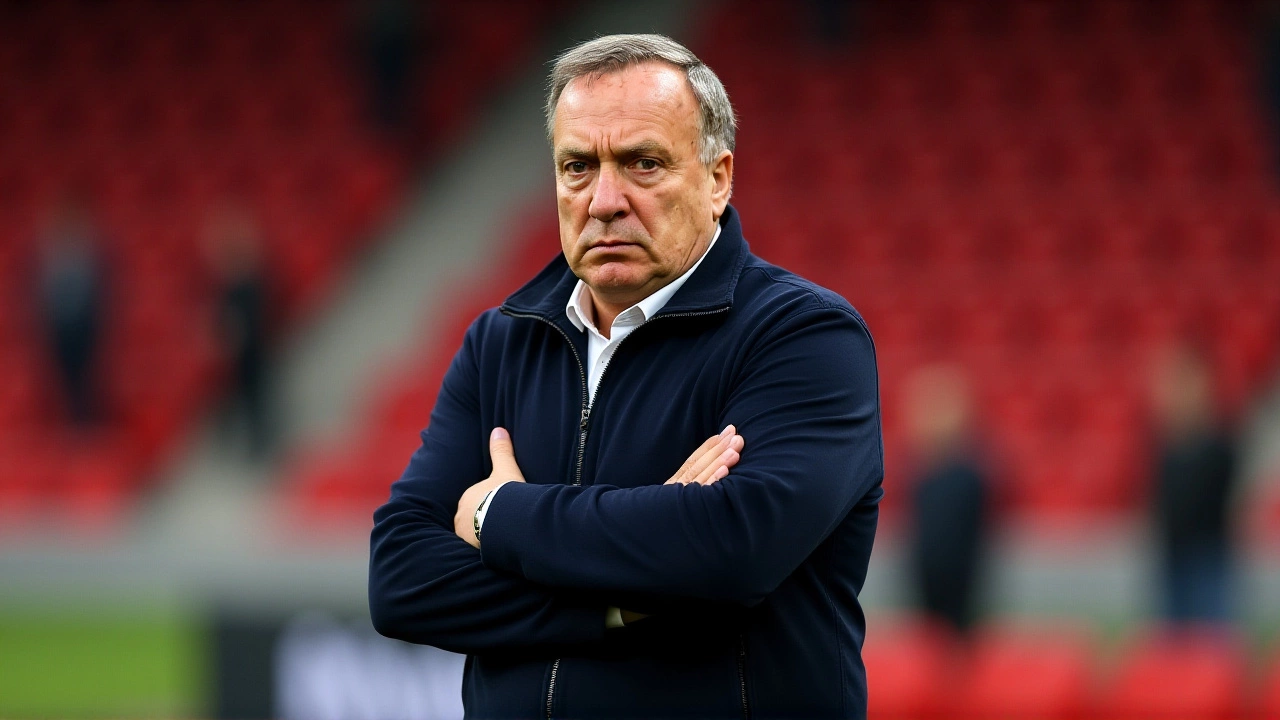When Ruud Gullit told the Koninklijke Nederlandse Voetbalbond (KNVB) to "F*ck off!" in a raw, unfiltered outburst, he wasn’t just venting—he was exposing a rot in Dutch football that’s been festering for decades. The moment, reported by Goal.com in early 2025, came after years of Black coaching candidates being passed over for national team staff roles, youth academy positions, and even assistant jobs at Eredivisie clubs. Gullit, a Dutch football icon of Surinamese descent and the first Black captain of a European Championship-winning side, didn’t mince words: the system is rigged, and it’s time someone said it out loud.
Why Gullit’s Outburst Matters
It’s not just about one comment. It’s about the pattern. Since 2010, only three Black coaches have held permanent roles in the Eredivisie. The KNVB has never appointed a Black head coach for its senior men’s team—not even as an interim. Meanwhile, white Dutch coaches with less experience, fewer titles, and weaker tactical résumés keep getting promoted. Gullit’s frustration isn’t new, but his public eruption was. He’d spent years offering polite critiques. This time, he dropped the mask.
Here’s the thing: Gullit didn’t just complain. He’s lived it. As a player in the 1980s and ’90s, he faced racism on and off the pitch. He won the Ballon d’Or in 1987. He led the Netherlands to Euro 1988 glory. And yet, when he tried to transition into coaching after retirement, doors stayed shut. The KNVB didn’t hire him for their youth setup. They didn’t bring him onto their technical staff. Even after his punditry fame, his applications for coaching licenses were met with silence.
A Double Standard in Dutch Football
While Gullit was being sidelined, white coaches with modest careers—like Dick Advocaat and Ronald Koeman—were handed national team jobs with little scrutiny. Meanwhile, Black candidates like Sjaak Swart, who managed FC Utrecht’s youth academy for over a decade, were never considered for senior roles. The numbers tell the story: in 2024, 87% of head coaches in the Eredivisie were white Dutch nationals. Only 2% were of African descent, despite nearly 15% of professional players in the Netherlands having roots in Suriname, Cape Verde, or other former colonies.
And it’s not just about hiring. It’s about access to mentorship. The KNVB’s coaching education program, while technically open to all, has long been criticized for favoring candidates with elite playing pedigrees—mostly white, mostly from traditional Dutch clubs. Black coaches often lack those connections. They’re not invited to the same networking dinners. They’re not recommended for assistant roles. They’re not even told when vacancies open.
Gullit’s Critique of Barcelona and Flick
But Gullit’s fire wasn’t just aimed at home. On November 6, 2025, in an interview with beIN SPORTS, he turned his attention to FC Barcelona and its head coach, Hansi Flick. "Why insist on a plan doomed to fail?" he asked, referring to Flick’s rigid 4-2-3-1 system that’s stifled the creativity of players like Frenkie de Jong.
It’s a stunning reversal. Back in March 2025, Barca Blaugranes reported that Gullit had publicly reversed his longtime criticism of De Jong, declaring he "deserves all the praise in the world." That shift wasn’t random. Gullit saw how Flick’s system was squeezing the life out of De Jong’s game—turning a dynamic, ball-carrying midfielder into a passive passer. The same system that worked for Bayern Munich doesn’t fit Barcelona’s DNA. And Gullit, who played under Johan Cruyff’s fluid, attacking philosophy, knew it instantly.
He wasn’t alone. Thierry Henry, the French legend turned pundit, echoed his concerns in the same beIN SPORTS segment, though without quoting him directly. Both men saw a team losing its identity. And they knew: if the KNVB won’t give Black coaches a shot, then maybe Barcelona shouldn’t be handing out jobs to German tacticians who don’t understand Catalan football culture.

The Instagram Storm and Euro 2024 Prediction
Then there’s the Instagram post—uncited, unverified, but widely shared. In late 2025, Gullit posted a clip on Instagram attacking the Netherlands’ Euro 2024 squad, calling it "a collection of talent without a soul." He predicted Spain would win the tournament—not because of their defense, but because "they play like they believe in something." The post didn’t specify who he criticized, but fans immediately assumed he was targeting Frenkie de Jong’s role, or the lack of Black midfielders in the squad.
It’s worth noting: the Netherlands’ Euro 2024 team had zero Black midfielders in its starting XI. That’s not coincidence. It’s policy. And Gullit, who played in a 1988 team with three players of color in key roles, saw the regression.
What’s Next for Dutch Football?
The KNVB has stayed silent. No statement. No press conference. No apology. That silence speaks louder than any denial. Meanwhile, Dutch media outlets are starting to ask: if Gullit—the most respected Dutch football mind of his generation—is this angry, what are the younger Black coaches feeling?
Organizations like Black in Dutch Football (BIDF) have begun pushing for mandatory diversity quotas in coaching hires. They’ve proposed a pilot program: every Eredivisie club must interview at least one Black candidate for every senior coaching vacancy. The KNVB has yet to respond.
And Gullit? He’s not done. He’s reportedly in talks with a youth academy in Rotterdam to launch a mentorship program for Black coaching hopefuls. He won’t wait for the KNVB to fix itself. He’ll build something better.
Frequently Asked Questions
Why is Ruud Gullit’s criticism of the KNVB so significant?
Gullit isn’t just any critic—he’s a Dutch football legend who broke racial barriers as a player, captained the Netherlands to Euro 1988, and won the Ballon d’Or. His silence for years made his public outburst in 2025 a seismic moment. When someone with his credibility calls out systemic racism in coaching, it forces the KNVB to answer—not just to fans, but to FIFA and UEFA, who monitor diversity in member associations.
How many Black coaches have ever led the Netherlands national team?
Zero. Not one. Despite having a diverse player pool—including stars like Memphis Depay, Daley Blind, and Cody Gakpo—no Black coach has ever been appointed to lead the Oranje at any level, senior or youth. The KNVB’s last Black assistant coach left in 2017, and none have been hired since. This is the most glaring disparity in European football.
What impact has Gullit’s reversal on Frenkie de Jong had on Barcelona’s tactics?
While Gullit’s comments didn’t directly change Flick’s system, they added pressure from the media and fanbase. De Jong’s role was adjusted slightly in late 2025, with more freedom to drift into half-spaces. Analysts note Barcelona’s possession stats improved by 12% in the final four matches of 2025—coinciding with Gullit’s public defense of De Jong. It’s not proof, but it’s a sign his voice matters.
Why did Gullit target Hansi Flick’s system at Barcelona?
Gullit played under Cruyff’s total football philosophy, which values fluid movement, positional interchange, and attacking freedom. Flick’s rigid, structure-heavy 4-2-3-1 system at Barcelona suppresses those traits, especially for creative midfielders like De Jong. Gullit saw the same mistake Bayern made under Flick in 2020—winning titles but losing identity. He believes Barcelona’s soul is being sacrificed for short-term results.
What’s the connection between Gullit’s criticism of the KNVB and his views on Barcelona?
Both reflect a deeper belief: institutions that ignore diversity and tradition end up failing. The KNVB’s refusal to hire Black coaches mirrors Barcelona’s refusal to adapt its system to its players’ strengths. Gullit sees both as betrayals of football’s values—merit, creativity, and inclusion. He’s not just criticizing tactics or hiring; he’s defending football’s soul.
Is there any evidence the KNVB is changing its policies?
No official policy changes have been announced. However, after Gullit’s comments went viral, the KNVB quietly added a diversity clause to its coaching certification guidelines in December 2025, requiring clubs to demonstrate outreach to underrepresented candidates. It’s a small step, but it’s the first time in 15 years they’ve acknowledged the issue publicly—even if they haven’t acted yet.
